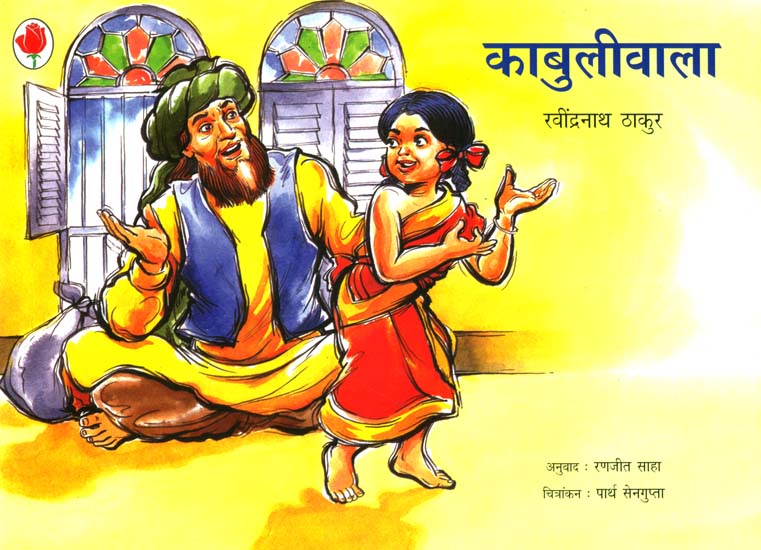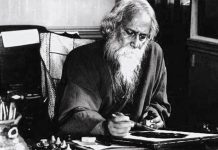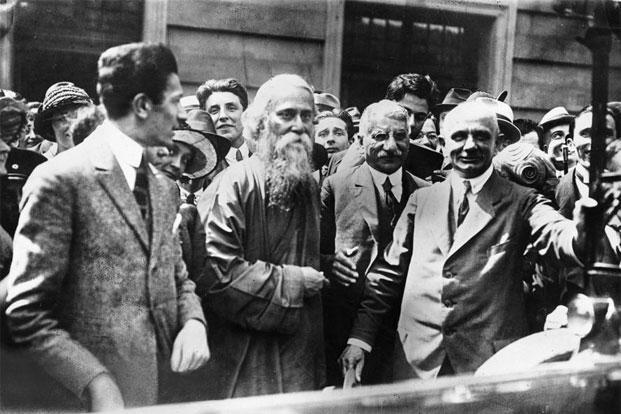If food nourishes the body the soul finds its nourishment through stories. Stories are at the heart of human civilization as they were both the earliest pedagogic tools and also an eternal source of entertainment for all generations. Stories hold the power to transport us to new lands and meet people we have never really known; such is their potential for creativity. The author shares an anecdote when storytelling revealed its brilliance once again.
Sharmistha Shree is a Writer by calling and a Civil Servant by profession, She lives in Dehradun.
It has been said that next to hunger and thirst, our most basic human need is for storytelling. -Khalil Gibran
Our ten year old daughter always loves to study with me. The duration of attention & efforts with her younger sibling often cuts into our joint studies. The other day, she insisted on reading out a chapter from Hindi text to her. I sat with both kids and pending homework of younger one coupled with thoughts of other household chores were lingering on. No sooner did she open the book; my thoughts were instantly calmed despite visible irritation over younger one’s animated play with Spiderman figurine.

The chapter titled Kabuli Wala transported me to a different world. This overbearingly adult, mature self of mine shifted to the childhood spaces of Kashmir (where I was born). Away from the rigmarole of everyday life; I found myself in my classroom setting listening to the story of Kabuli Wala and Mini for the first time.(It always makes me glad to find some stories of my school curriculum still existing in today’s era of Digi/Smart Classes) And as I grew up; how the lyrics of the song, Áe mere pyaare watan, Ae mere bichade chaman’ from the movie based on Kabuli Wala would make me cry as well as soothe something within. With moistened eyes yet a calmer self on the rainy evening of Doon; I began reading out the story.
The simple story of an Afghan salesman Rehmat earning his livelihood in India is yet another beautiful engagement with simplicity of human relationships by the master story teller Tagore. The Humanist in Tagore once again comes alive as he dwells in the spaces governing human relationships cutting across boundaries of time and barriers (Both natural & man made).Kabuli Wala despite his stern and robust outer self becomes playful and childlike when interacting with little girl Mini. The giving of dry fruits to Mini is filled with a non-transactional approach. As I started dramatizing the interaction between Mini and Kabuli Wala; my little son kept aside his Spiderman (I entered self-congratulatory mode for a while!). My transformation into fierce yet loving Kabuli Wala and blabbering Mini got him engaged. The daughter was on cloud nine already.
The world of innocence of a child is so beautifully captured in the story.Mini as a young girl child is a chatterbox and her father (the Narrator) is her willing audience. Her questions are simply framed and expressed in an uninhibited manner. The father enjoys his interaction with her and he introduces her to the Kabuli Wala (A figure she dreads earlier). The joy filled communication between Kabuli Wala and Mini becomes a treat to observe. My both kids were completely drawn into their lives and communication. My daughter interrupted when she felt the break down in my voice as I was speaking some dialogues. There are times when you have realisation of the little girl housed within yet as a mother, one is unable to communicate that self to the little daughter. That’s the beauty and universal impact of Tagore’s stories. They bring out layers of human emotions dwelling within self. The father of Mini, for example bemoans the fact that the daughter becomes less communicative as she grows up.
As the story continues; the abrupt arrest of Kabuli Wala pictured as handcuffed and blood soaked Afghan in the text book made both kids sad. Mini as an innocent child understands the situation as some world play when Kabuli Wala expresses his state with a smile. Rehmat is jailed for stabbing a debtor and returns to a different world after some years. It is day of wedding and Mini is decked up a coy bride. Expectedly, my daughter stared calculating and wondering why Mini was getting married in early teens. Quickly mentioning about old traditions during those times; I continued with storytelling. Oblivious of the outside world and years of life that Prison robs the self of; an old Kabuli Wala comes out asking for Mini.After some second thought; the narrator calls out for her. Kabuli Wala is shocked and suddenly realization of enormity of loss dawns upon his self. Hardly any exchange of words takes place between them. Tagore has poignantly captured his emotions as he recollects the frozen memories about his own daughter in Kabul (same age as that of Mini!) and wondering how she must have also grown up. The meaning of Gift acquires a new meaning as he gives some dry fruits for Mini in the hands of the father. The father is overwhelmed and gives him money to go back to his country.
By this time, the mood in otherwise noisy kids room was solemn. I, as a storyteller, a girl at heart and a mother was trying to hold back, a lot. On that rainy evening in Doon when a lot was pouring inside- outside: I couldn’t contain myself. A big warm hug with both kids became a perfect ending to the storytelling or a beginning, perhaps.
The New Leam has no external source of funding. For retaining its uniqueness, its high quality, its distinctive philosophy we wish to reduce the degree of dependence on corporate funding. We believe that if individuals like you come forward and SUPPORT THIS ENDEAVOR can make the magazine self-reliant in a very innovative way.












